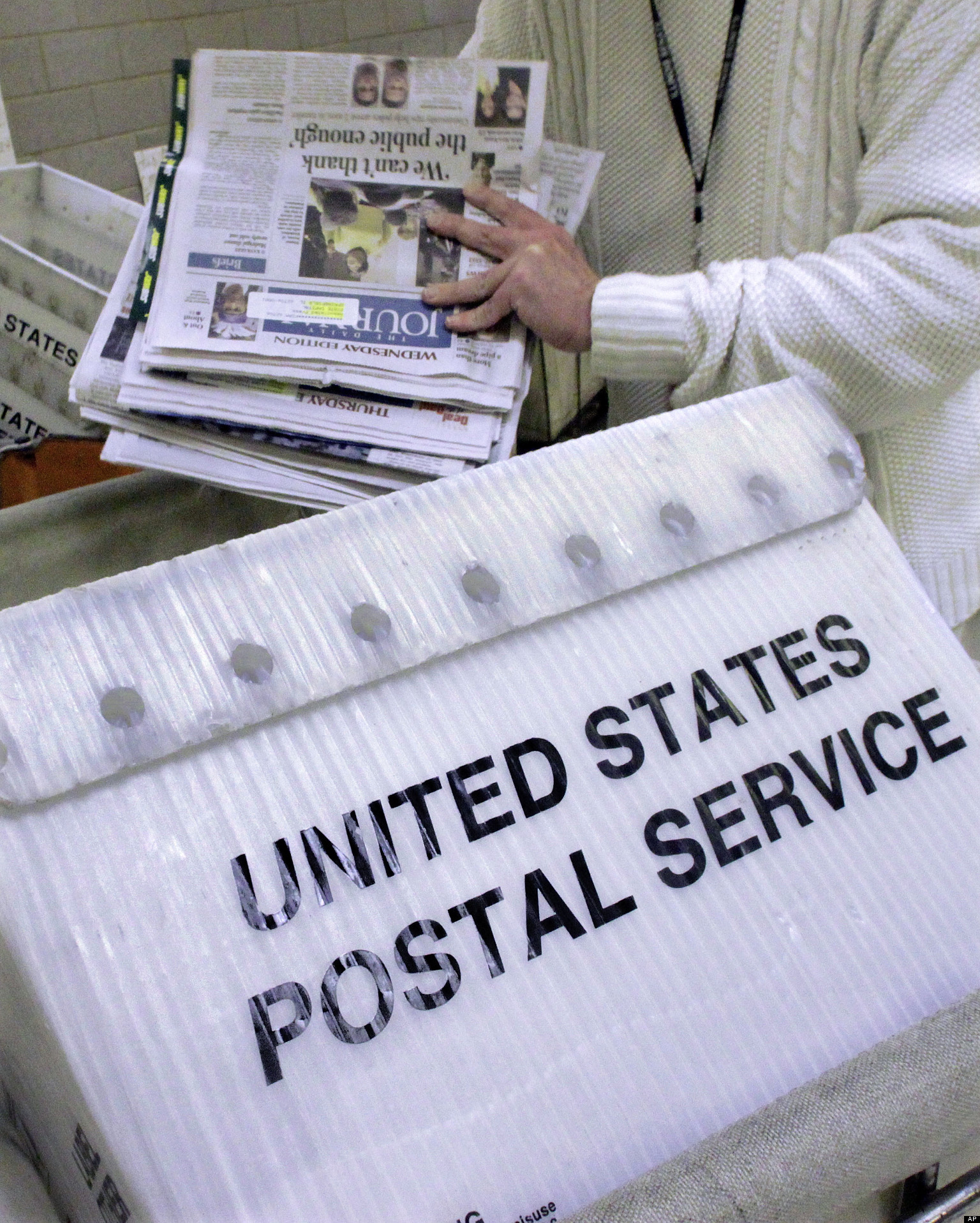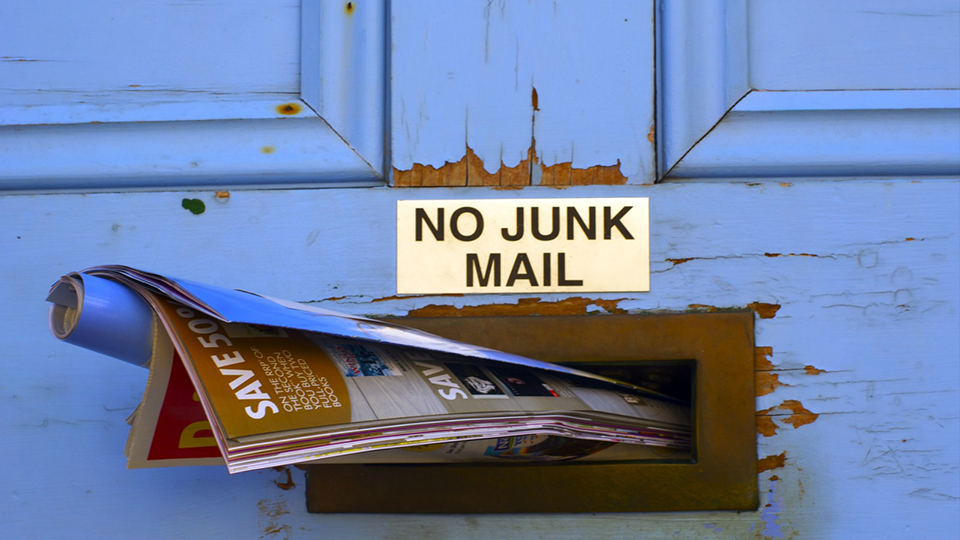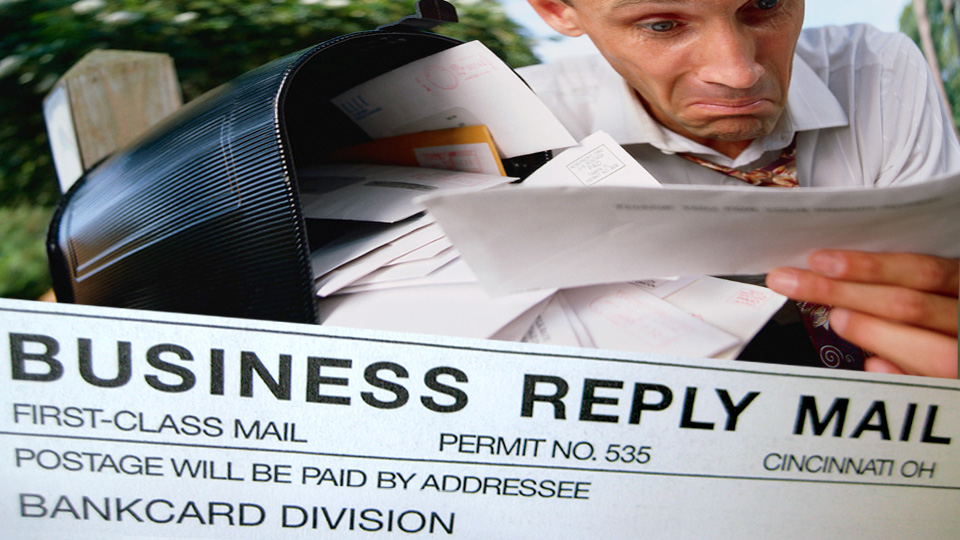If you had a great job that paid really well, but your health insurance benefits from that job had to be paid in full for 75 years into the future, it wouldn’t matter how much you got paid because you would always be broke and in debt. The same thing is happening to the United States Postal Service.
The USPS is NOT in trouble. Despite the doom and gloom trumpeted by the corporate media, the post office actually posted $700 millionin operation profits in the last four years. The USPS is certainly in a crisis, but it doesn’t have anything to do with the post office’s facilities, online commerce or employee salaries.
It should come as a surprise to nobody that the USPS’s dire financial situation is a direct result of the callousness and shortsightedness of Congress. Luckily, there’s a way we can all help the post office generate more revenue while simultaneously bleeding the banks dry one envelope at a time. But I’ll get to that in a minute.
The reason the U.S. Postal Service is running at constant losses and having to shutter offices around the country is a direct result of thePostal Reform and Accountability Act (PRAA) of 2006. The bill was passed by the same lame duck Congress that got their asses handed to them in the 2006 mid-term elections, amidst a wave of populist anti-war anger that mobilized millions of voters to throw the war hawks out of Congress.One of Congress's last acts after their humiliating loss at the polls, before they went home, was to pass a bill that would start the slow, agonizing death of the U.S. post office — a bill directly lobbied by USPS’s competitors in the private parcel delivery companies.
The bill required the USPS to pay for the health care benefits of all their employees 75 years into the future, including for employees who have yet to be born. No other company is required to do this, and if they were, they would undoubtedly have significant financial trouble, too. Hardly anybody knows this history, because the corporate media is too lazy to do their homework or doesn’t want to jeopardize their profitable relationships with companies like FedEx.
Repealing the PRAA is the only thing that needs to happen for the post office to get back on its feet.
Unlike Wall Street banks, the post office hasn’t taken a nickel from taxpayers since 1971. All of the post office’s costs of paying their employees, who deliver over 560 million pieces of mail every 6 days, fueling the trucks that drive 4 million miles in a week, come from postage costs. The USPS performs an essential service at a very low cost.
But there’s a great way to provide the post office with more revenue, lowering the cost of postage while simultaneously sticking it to the big banks. All it takes is you opening your junk mail.
Most of us get forests of mail delivered to us each year, most of which are the annoying unsolicited offers from credit card companies and banks. Each one of these pieces of mail comes with a business reply envelope, and on the envelope there is a spot in the corner that says the cost of postage is already covered by the sender. This means that by simply stuffing and sending off the envelopes that come with your junk mail, you’re bleeding the banks dry a few cents at a time, all of which goes directly to the post office.
This video from the fall of 2011, in the height of the physical encampment stage of the Occupy movement, first introduced the concept of “Keeping Wall Street Occupied.” However, some people went overboard with the idea, going so far as to tape the business reply envelope to cinder blocks or boxes full of bricks to make the banks pay for all the extra weight.
The same creator of the original video made this follow-up, encouraging people to still stuff the envelopes and send them in the mail, but instead going for creativity instead of high shipping costs. He even made the point that the people the banks pay to sort through all this mail would benefit from people sending pamphlets about the different unions these workers could join through the pre-paid postage envelopes.
Will this tactic alone bring Wall Street to its knees? Probably not. But it can certainly generate more revenue for the post office, and create jobs at both the USPS and the mail sorting offices for the banks. And more jobs is better for everyone in the long run. So next time you get a piece of junk mail, make use of it instead of tossing it in the recycling.
3 WAYS TO SHOW YOUR SUPPORT
- Log in to post comments














